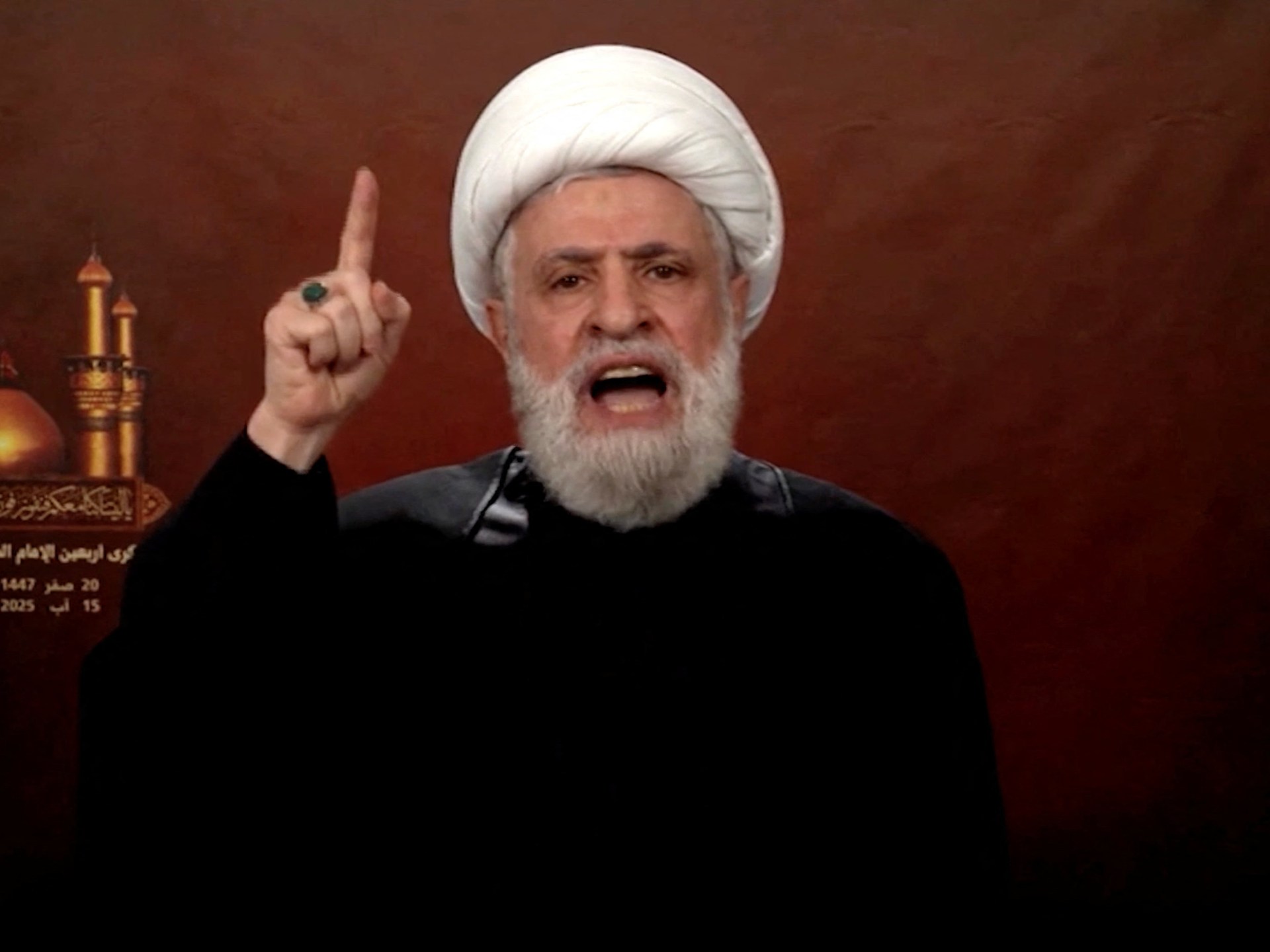Qassem stated that the Lebanese government must first ensure that Israel adheres to the ceasefire agreement before beginning discussions on a national defense strategy.
The Hezbollah leader said that the resistance would continue to serve as a “strong barrier” that would prevent Israel from achieving its objectives and that it would be impossible for Israel to remain in Lebanon or carry out its expansionist project there.
He rebuffed Israeli demands to first withdraw from Lebanese territory, release prisoners, and halt attacks on the Lebanese government and foreign suggestions to include Hezbollah’s arsenal in a national defense strategy.
Stop the aggression if you truly want sovereignty. We won’t give up the weapons we have in our possession, Qassem said.
He continued, “It cannot be trusted that Lebanon’s sovereignty will survive if this government operates in its current form.”
A resolution tasked the army with developing a strategy to disarm Hezbollah by the end of the year was approved by the Lebanese Council of Ministers last month.
The decree was in line with a proposal from the United States that contained flimsy assurances that Israel would end its occupation of southern Lebanon and launch daily attacks against the country if Hezbollah’s weapons were taken down.
Hezbollah has stated that it will “treat” the decision as if it doesn’t exist.
Israel said it would consider reducing its military presence in southern Lebanon if Beirut’s armed forces invaded Hezbollah’s territory. Qassem made these remarks as Israel made its remarks. Israel’s support for Lebanon’s cabinet’s recommendation to assign an army with a disarmament plan by the end of the year was made public by Prime Minister Benjamin Netanyahu’s office on Monday.
The Israeli military will engage in reciprocal measures, including a gradual reduction, if the Lebanese Armed Forces take the necessary steps, according to the Israeli prime minister’s office.
The Israeli announcement came a day after Netanyahu had a meeting with US Ambassador Tom Barrack, who has been heavily involved in a plot to detach Israeli forces from Lebanon.
‘Step-by-step’
Barrack urged Israel to honor its obligations under the Hezbollah ceasefire.
“The Lebanese government has done their part,” he said. “There is always a step-by-step approach. The first step was made by them. Israel must now follow through on what Barrack described during meetings with Lebanese officials last week in Beirut.
US deputy envoy Morgan Ortagus arrived in Beirut on Monday, according to Lebanon’s official National News Agency, before scheduled meetings with officials.
Despite a US-brokered ceasefire in November, Israel still holds five positions in southern Lebanon. Within two months, Lebanon’s armed forces were scheduled to take control of the nation’s southern region, which has long been Hezbollah’s mainhold.
In nearly daily violations of the November truce, Israeli forces have continued to air attack Lebanon, killing and injuring people, including Syrian refugees, and destroying infrastructure and properties.
One person was killed in a drone attack in southern Lebanon during the most recent Israeli aggression. The drone struck a pick-up truck on the Bint Jbeil district’s Ain al-Mazrab-Tebnine road, according to Lebanon’s Ministry of Public Health.
Later on Monday, the Israeli military claimed in a statement that it had killed a Hezbollah member and that it would “continue to operate to remove threats posed to the Israeli citizens.”
After Lebanon’s civil war of 1975-1990, Hezbollah, the only group that still had its weapons, suffered significant damage from the assassination of senior leaders, including former chief Hassan Nasrallah, the assassination of thousands of its fighters and civilians killed, and tens of thousands of Shia and other communities were forced to flee their destroyed homes.
Source: Aljazeera

Leave a Reply